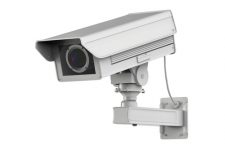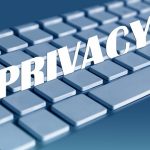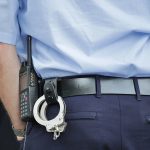CCTV Cameras May Soon Record Audio

The mayor of Moreton Bay says it’s necessary for public safety. Many aren’t happy ‘Big Brother will be listening in to their private conversations. The Queensland Law Society says it may breach state listening device laws.
Moreton Bay Council, just north of Brisbane, is refusing to back down despite a public backlash over the installation of listening devices on its CCTV camera network.
The installation of sound recording devices on 330 of the precinct’s 874 cameras is believed to be the first in Australia – and the move may end up in court.
‘Big Brother’
Those against the devices have compared the Council to ‘Big Brother’ in George Orwell’s famous novel 1984, and both the Queensland Law Society and Privacy Commissioner have expressed concerns about the scheme’s legality.
Law Society spokesman Bill Potts said the rollout appears to breach the Invasion of Privacy Act’s restrictions on recording private conversations.
The Queensland Council for Civil Liberties has weighed in by saying the public needs to know how long recordings will be kept for, and that at the very least, signs should be posted warning people that their conversations may be recorded.
But the Mayor of Moreton Bay, Allan Sutherland, remains defiant. He claims the council sought legal advice before deciding to install listening capability.
“… We haven’t got people sitting in an office, eavesdropping on conversations…. But… if there’s a creepy sort of a character that’s talking and liaising with someone else and the police request that file because they think he’s a paedophile and he’s hanging around those areas, we pass it on and police access the audio,” Mr Sutherland said.
How effective is CCTV in fighting crime?
There has long been debate about whether CCTV cameras are effective in deterring criminal activity.
While CCTV is often sold as a way to reduce crime, research suggests that cameras have very little deterrent effect, although the footage can indeed be effective in successfully prosecuting crime after the event.
And while existing non-audio systems are helping with prosecutions in places such as the Brisbane CBD, critics of the new scheme have questioned the value of audio – arguing there is no evidence to suggest that any potential benefits will outweigh the significant privacy intrusion.
In New South Wales
Listening device legislation is primarily state based.
The Surveillance Devices Act 2007 is the main piece of legislation which governs the use of such devices in NSW.
Section 7 of that Act makes it an offence punishable by up to five years’ imprisonment and/or $55,000 for a person to knowingly install, use or cause to be used or maintain a listening device to overhear, record, monitor or listen to a private conversation to which the person is not a party, or to record a private conversation to which the person is a party.
A ‘listening device’ is defined by the Act as “any device capable of being used to overhear, record, monitor or listen to a conversation or words spoken to or by any person in conversation, but does not include a hearing aid or similar device…”. This includes a mobile phone or other digital device.
However, there are a range of exceptions to the prohibition contained in section 7, which include:
- the use of a listening device with a warrant or other legal authorisation, or to record the refusal of a police interview, or to locate and retrieve the device, or where it is used by police to record the operation of a Taser, or on police body-worn video equipment, and
- the unintentional hearing of a private conversation by means of a listening device.
In addition, it is not an offence to record a private conversation to which a person is a party if:
- all of the principal parties to the conversation consent, expressly or impliedly, or
- a principal party consents and the recording of the conversation:
– is reasonably necessary for the protection of the lawful interests of that principal party, or
– is not made for the purpose of communicating or publishing the conversation, or a report of the conversation, to persons who are not parties to the conversation.
A ‘principal party’ is defined as “a person by or to whom words are spoken in the course of the conversation”.
Suing for invasion of privacy
New South Wales may soon be the first state to enact new laws for invasions of privacy – allowing those who have had their privacy breached to sue for damages.
The proposed law is one suggested outcome of a review by The Standing Committee on Law and Justice which released a report stemming from ‘increasing community concern about the use of technology, including social media and surveillance technology, in ways which intrude upon and negatively impact people’s day-to-day lives.’
In Queensland though, the debate continues, although there are calls for further public consultation before listening devices are rolled out.








